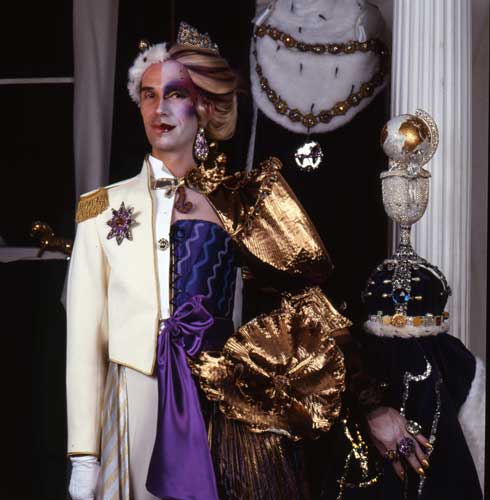Passed/Failed: An education in the life of Alternative Miss World organiser Andrew Logan
'We had prayers in the dorm'

Your support helps us to tell the story
From reproductive rights to climate change to Big Tech, The Independent is on the ground when the story is developing. Whether it's investigating the financials of Elon Musk's pro-Trump PAC or producing our latest documentary, 'The A Word', which shines a light on the American women fighting for reproductive rights, we know how important it is to parse out the facts from the messaging.
At such a critical moment in US history, we need reporters on the ground. Your donation allows us to keep sending journalists to speak to both sides of the story.
The Independent is trusted by Americans across the entire political spectrum. And unlike many other quality news outlets, we choose not to lock Americans out of our reporting and analysis with paywalls. We believe quality journalism should be available to everyone, paid for by those who can afford it.
Your support makes all the difference.Andrew Logan, 63, has been the "host and hostess" of his Alternative Miss World competition since 1972. This year's event will be held on May 2 at London's Roundhouse. His exhibitions are showing at the Harley Gallery, Nottingham, and City Inn Hotel, London SW1. His book, An Artistic Adventure, was published last year. The Andrew Logan Museum of Sculpture is in Berriew, Montgomeryshire.
I do remember dancing round the maypole at St Mary's Infants on Church Green, Witney, Oxfordshire, which is rather appropriate for the founder of the Alternative Miss World. What do I remember of my junior, Batt's C of E school? Painting. It was powder paint on that soggy paper. Everyone else was outside, playing hopscotch and bullying each other. And I remember Mrs Gomm, who was huge, over 6ft with big hands. She'd come up and slap you; it was very peculiar, as we were all pretty quiet little children. I enjoyed work.
At 11 I went to Lord Williams, then to a grammar school in Thame. Boarding was a shock to the system: uniforms, trunks – and the horrible ghost of a headmaster who had murdered the matron one 25 November! The older boys used to re-enact this every year. You'd hear a scream and a thud and something being pulled up the stairs to the dormitory. Then the "ghost" – it must have been one boy sitting on another's shoulders – would attack the weakest, which included me, with a wet flannel which felt like blood.
It was a very rich learning period. I didn't really mix but would be on the sidelines reading. I came across the Greek and Roman myths, which influenced my work now, such as [his flying horse sculpture] Pegasus. I like swimming and came second in the cross-country running, which was real cross-country – over ploughed fields and through rivers. But in rugby, my sister remembers I tackled somebody and said: "Oh, I'm so sorry – did I hurt you?"
We had prayers in the dorm. I don't know if there was actually thunder and lightning but one night, when the net curtains were blowing in the wind, I felt the "spirit descending" on me. That's when I wanted to be a vicar; this lasted until I became a window cleaner. My brothers did window-cleaning and I took over when they left home. One day I was at the top of a ladder when my brother walked past with an architectural student who said: "Why don't you become an architect?" So I did.
The fees at Lord Williams were going up and I went to Burford Grammar, a fascinating change: it was wonderful, a co-ed day school with an agricultural slant: I remember a pig getting loose in the grounds. I started to do quite a few school plays; the Witney Gazette critic said I "overacted", which I thought was fabulous.
The standards had been a lot higher at Thame, where I'd been about 14th out of 30 in the class; now I was second. I got eight or nine O-levels. A-levels (geography, English and history) were my happiest time. There were only three of us. The geography mistress had a funny little bubble car; she'd take us out, point at something and we'd end up in the ditch.
I was at the Oxford School of Architecture, based at Oxford Poly (now Oxford Brookes) for six years. It was excellent. Architecture – and particularly the architectural drawing, done then with a pencil, not by computers – is such a good basis for many things. I was in seventh heaven. I always enjoyed being taught by Mr Townsend, who did plumbing. Sadly, Mr Townsend went up on the roof and jumped over the edge. For anyone else plumbing is awful: human waste. But he made it sound, I suppose, glamorous.
Subscribe to Independent Premium to bookmark this article
Want to bookmark your favourite articles and stories to read or reference later? Start your Independent Premium subscription today.
Join our commenting forum
Join thought-provoking conversations, follow other Independent readers and see their replies
Comments